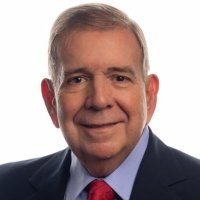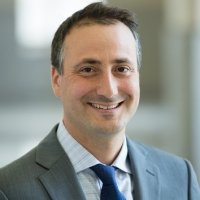Venezuela’s High-Stakes Election: A Conversation with Presidential Candidate Edmundo González
For the first time in more than a decade, Venezuela’s opposition sees the possibility of gaining power through democratic elections. The authoritarian regime of Nicolás Maduro has committed to holding national elections on July 28 and the opposition candidate, retired diplomat Edmundo González, enjoys a large lead in polls. Victory is hardly guaranteed, however. There are fears the regime might sideline González, manipulate the results, or suspend the election altogether. After all, it has already disqualified the Democratic Unitary Platform’s first two choices, including María Corina Machado, who overwhelmingly won the opposition primary in October. That said, Maduro is under increasing international pressure, including from the United States, to respect the rights of Venezuelan voters.
González has promised to rebuild the country’s democracy and address the economic and humanitarian crises that led nearly 8 million Venezuelans to leave the country since 2014. Though the regime has sought to undermine his campaign–arresting advisers and even shutting down a restaurant that hosted González–he projects an image of moderation and promotes national unity. To learn more, Ambassador Mark Green, President and CEO of the Wilson Center, spoke to González about his expectations for the election, his vision for Venezuela’s future, and the role of the United States in restoring Venezuela’s democracy. Their dialogue is part of the Wilson Center’s broader efforts to support US policy toward Venezuela, including a new series of reports, The Venezuela Desk, analyzing US policy options before and after the election.
Speakers


Introduction

Hosted By

Latin America Program
The Wilson Center’s prestigious Latin America Program provides non-partisan expertise to a broad community of decision makers in the United States and Latin America on critical policy issues facing the Hemisphere. The Program provides insightful and actionable research for policymakers, private sector leaders, journalists, and public intellectuals in the United States and Latin America. To bridge the gap between scholarship and policy action, it fosters new inquiry, sponsors high-level public and private meetings among multiple stakeholders, and explores policy options to improve outcomes for citizens throughout the Americas. Drawing on the Wilson Center’s strength as the nation’s key non-partisan policy forum, the Program serves as a trusted source of analysis and a vital point of contact between the worlds of scholarship and action. Read more


